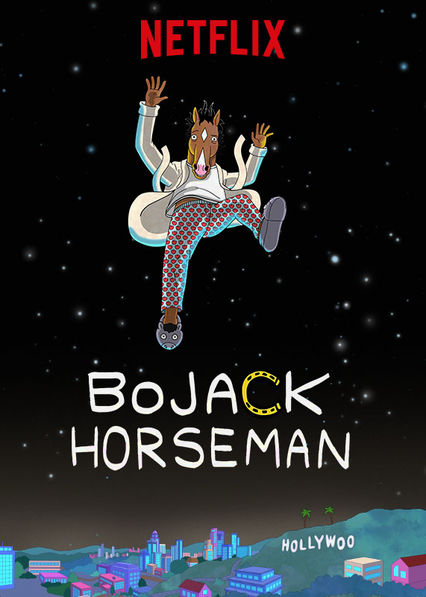Talking horse proves ridiculousness is okay in BoJack Horseman

A horse with a washed out acting career stars in an animated series where animals interact with humans, making it hard to describe the Netflix series Bojack Horseman without seeming like you are on drugs.
Despite the unrealistic animals-acting-as-humans bit, however, the show packs in a satire that not only brings about humor but dives into real life issues as well, leaving the viewer thinking there’s more to the show than average one-liners.
The main character BoJack Horseman, voiced by Will Arnett, is a horse that went from acting on a 1990’s sitcom to wasting his days on drugs, alcohol, and women. While he first presents himself as an abrasive character, the writers create a more complex character as the show progresses. BoJack’s underlying depression and harsh childhood make the audience sympathize with the funny, yet sad horse.
“Like many of this era’s most striking series, ‘BoJack’ is so fundamentally different from anything that’s come before it that its brilliance took a while to become fully clear,” Alan Sepinwell, writer for hitflix.com, wrote. “It’s an absurd Hollywood satire, but also a deep character study of a profoundly depressed (horse)man, and it may be one of the saddest shows in all of television. And also one of the very best.”
To further the complexity of BoJack, his main love interest Diane, voiced by Allison Brie, is dating his annoying dog friend Mr. Peanutbutter. BoJack’s inability to achieve companionship can be funny at times, but the satire woven in creates a sadness over loneliness that humans can relate to, allowing the show to become more than inappropriate cartoon one-liners.
While the show’s satire is well-crafted and makes the viewer relate to a horse, the writers also pack in plenty of blatant jokes that balance out the sadness of BoJack’s struggles.
“There are the obvious jokes to make there, and then there are the less obvious ones, and the show goes full tilt at both,” Liz Miller wrote for indiewire.com. “And while there’s a comfort in having a sense of where a runner is going, there are enough curveballs to the humor that laughs are a’plenty.”
One of the best parts of the show is BoJack’s roommate Todd, who despite being a freeloader who simply goes off on random adventures, manages to open up BoJack and show his caring side. Todd’s naivety and innocence not only reminds the viewer of BoJack’s ability to have true relationships, but also creates the underlying theme that sometimes it is okay to not have everything figured out.
Overall, BoJack Horseman leaves the viewer with the lasting impression that though situations may seem ridiculous, there is often more than meets the eye; a lesson that other adult oriented cartoons have yet to make, and most likely will struggle to convey in the future.

Madison is on both the basketball and soccer teams, and she spends most of her summer working as a camp counselor in Wisconsin. She has been a staff member...
